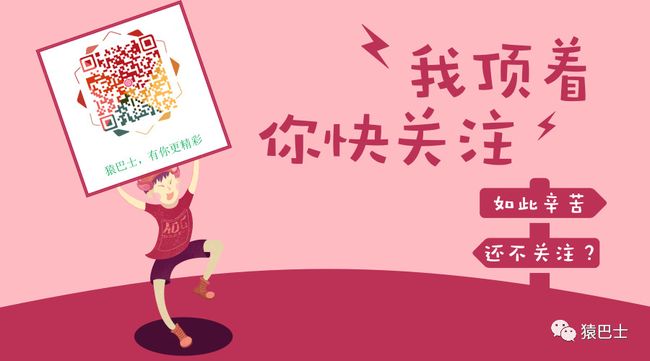前言
好几天都没有写了,主要是最近一直在做原型图,六天的时间出了两个项目的原型(PC+手机),结果累成狗,发现自己真有点像超人了。昨天写了一个时间轴的小功能。在这里给大家分享一下,画虚线的两种方法,顺便也帮助自己做一下记忆。
重写drawRect方法
- (void)drawRect:(CGRect)rect{
[super drawRect:rect];
CGContextRef currentContext = UIGraphicsGetCurrentContext();
//设置虚线颜色
CGContextSetStrokeColorWithColor(currentContext, [UIColor BlackColor].CGColor);
//设置虚线宽度
CGContextSetLineWidth(currentContext, 1);
//设置虚线绘制起点
CGContextMoveToPoint(currentContext, 0, 0);
//设置虚线绘制终点
CGContextAddLineToPoint(currentContext, self.frame.origin.x + self.frame.size.width, 0);
//设置虚线排列的宽度间隔:下面的arr中的数字表示先绘制3个点再绘制1个点
CGFloat arr[] = {3,1};
//下面最后一个参数“2”代表排列的个数。
CGContextSetLineDash(currentContext, 0, arr, 2);
CGContextDrawPath(currentContext, kCGPathStroke);
}
看着这些代码肯定有一部分人头疼,因为一般开发绘图部分用的比较少,特别是很少接触这些东西的人,甚至对绘图这部分的只是已经忘光了,所以在这里自己也脑补一下。
以下来自转载
iOS的绘图操作是在UIView类的drawRect方法中完成的,所以如果我们要想在一个UIView中绘图,需要写一个扩展UIView 的类,并重写drawRect方法,在这里进行绘图操作,程序会自动调用此方法进行绘图。下面先说明一下绘图,比如,你想绘制一个方块,你需要写一个类来扩展UIView并在drawRect方法中填入如下代码:
- (void)drawRect:(CGRect)rect {
// Drawing code.
//获得处理的上下文
CGContextRef context = UIGraphicsGetCurrentContext();
//设置线条样式
CGContextSetLineCap(context, kCGLineCapSquare);
//设置线条粗细宽度
CGContextSetLineWidth(context, 1.0);
//设置颜色
CGContextSetRGBStrokeColor(context, 1.0, 0.0, 0.0, 1.0);
//开始一个起始路径
CGContextBeginPath(context);
//起始点设置为(0,0):注意这是上下文对应区域中的相对坐标
CGContextMoveToPoint(context, 0, 0);
//设置下一个坐标点
CGContextAddLineToPoint(context, 100, 100);
//设置下一个坐标点
CGContextAddLineToPoint(context, 0, 150);
//设置下一个坐标点
CGContextAddLineToPoint(context, 50, 180);
//连接上面定义的坐标点
CGContextStrokePath(context);
}
再说明一下重绘,重绘操作仍然在drawRect方法中完成,但是苹果不建议直接调用drawRect方法,当然如果你强直直接调用此方法,当然是没有效果的。苹果要求我们调用UIView类中的setNeedsDisplay方法,则程序会自动调用drawRect方法进行重绘(调用setNeedsDisplay会自动调用drawRect)。
在UIView中,重写drawRect: (CGRect) aRect方法,可以自己定义想要画的图案.且此方法一般情况下只会画一次.也就是说这个drawRect方法一般情况下只会被掉用一次. 当某些情况下想要手动重画这个View,只需要掉用[self setNeedsDisplay]方法即可.
drawRect的执行顺序及注意
drawRect调是在Controller->loadView, Controller->viewDidLoad 两方法之后掉用的.
如果在UIView初始化时没有设置rect大小,将直接导致drawRect不被自动调用。
该方法在调用sizeThatFits后被调用,所以可以先调用sizeToFit计算出size。然后系统自动调用drawRect:方法。
通过设置contentMode属性值为UIViewContentModeRedraw。那么将在每次设置或更改frame的时候自动调用drawRect:。
直接调用setNeedsDisplay,或者setNeedsDisplayInRect:触发drawRect:,但是有个前提条件是rect不能为0.
以上1,2推荐;而3,4不提倡
- 若使用UIView绘图,只能在drawRect:方法中获取相应的contextRef并绘图。如果在其他方法中获取将获取到一个invalidate的ref并且不能用于画图。drawRect:方法不能手动显示调用,必须通过调用setNeedsDisplay 或者 setNeedsDisplayInRect ,让系统自动调该方法。
- 若使用calayer绘图,只能在drawInContext: 中(类似鱼drawRect)绘制,或者在delegate中的相应方法绘制。同样也是调用setNeedDisplay等间接调用以上方法。
- 若要实时画图,不能使用gestureRecognizer,只能使用touchbegan等方法来掉用setNeedsDisplay实时刷新屏幕
转载地址:
http://blog.csdn.net/fww330666557/article/details/8647608
通过UIImage的绘图方法来绘制
// 画虚线
// 创建一个imageView 高度是你想要的虚线的高度 一般设为2
_lineImg = [[UIImageView alloc] initWithFrame:CGRectMake(0, 20, kScreenWidth, 2)];
// 调用方法 返回的iamge就是虚线
_lineImg.image = [self drawLineByImageView:_lineImg];
// 添加到控制器的view上
[self.view addSubview:_lineImg];
// 返回虚线image的方法
- (UIImage *)drawLineByImageView:(UIImageView *)imageView{
UIGraphicsBeginImageContext(imageView.frame.size); //开始画线 划线的frame
[imageView.image drawInRect:CGRectMake(0, 0, imageView.frame.size.width, imageView.frame.size.height)];
//设置线条终点形状
CGContextSetLineCap(UIGraphicsGetCurrentContext(), kCGLineCapRound);
// 5是每个虚线的长度 1是高度
float lengths[] = {5,1};
CGContextRef line = UIGraphicsGetCurrentContext();
// 设置颜色
CGContextSetStrokeColorWithColor(line, [UIColor colorWithWhite:0.408 alpha:1.000].CGColor);
CGContextSetLineDash(line, 0, lengths, 2); //画虚线
CGContextMoveToPoint(line, 0.0, 2.0); //开始画线
CGContextAddLineToPoint(line, kScreenWidth - 10, 2.0);
CGContextStrokePath(line);
// UIGraphicsGetImageFromCurrentImageContext()返回的就是image
return UIGraphicsGetImageFromCurrentImageContext();
}
通过CAShapeLayer方式绘制虚线
/**
** lineView: 需要绘制成虚线的view
** lineLength: 虚线的宽度
** lineSpacing: 虚线的间距
** lineColor: 虚线的颜色
**/
+ (void)drawDashLine:(UIView *)lineView lineLength:(int)lineLength lineSpacing:(int)lineSpacing lineColor:(UIColor *)lineColor
{
CAShapeLayer *shapeLayer = [CAShapeLayer layer];
[shapeLayer setBounds:lineView.bounds];
[shapeLayer setPosition:CGPointMake(CGRectGetWidth(lineView.frame) / 2, CGRectGetHeight(lineView.frame))];
[shapeLayer setFillColor:[UIColor clearColor].CGColor];
// 设置虚线颜色为blackColor
[shapeLayer setStrokeColor:lineColor.CGColor];
// 设置虚线宽度
[shapeLayer setLineWidth:CGRectGetHeight(lineView.frame)];
[shapeLayer setLineJoin:kCALineJoinRound];
// 设置线宽,线间距
[shapeLayer setLineDashPattern:[NSArray arrayWithObjects:[NSNumber numberWithInt:lineLength], [NSNumber numberWithInt:lineSpacing], nil]];
// 设置路径
CGMutablePathRef path = CGPathCreateMutable();
CGPathMoveToPoint(path, NULL, 0, 0);
CGPathAddLineToPoint(path, NULL,CGRectGetWidth(lineView.frame), 0);
[shapeLayer setPath:path];
CGPathRelease(path);
// 把绘制好的虚线添加上来
[lineView.layer addSublayer:shapeLayer];
}
这部分代码,有一个注意点:就是position和anchorPoint的区别,这点有兴趣的可以去脑补一下。当然layer上的绘图,我也感觉自己很low了,因为形式没用过,所以基本上快忘光了,所以自己也需要花时间去脑补一下。
链接:http://wonderffee.github.io/blog/2013/10/13/understand-anchorpoint-and-position/
图片平铺(简单暴力)
UIImageView *imgDashLineView =[[UIImageView alloc] initWithFrame:CGRectMake(15, 200, self.view.frame.size.width - 30, 1)];
[imgDashLineView setBackgroundColor:[UIColor colorWithPatternImage:[UIImage imageNamed:@"xuxian.png"]]];
[self.view addSubview:imgDashLineView];
写完这篇博客,感觉自己现在绘图基本忘光了,突然感觉好low的样子……
欢迎关注我的个人微信公众号,免费送计算机各种最新视频资源!你想象不到的精彩!
